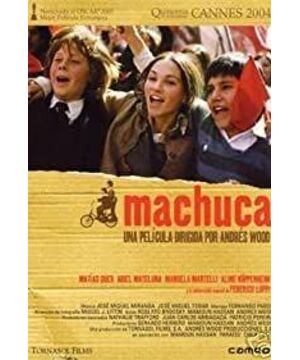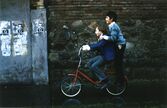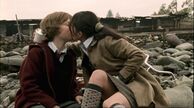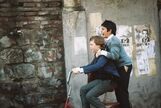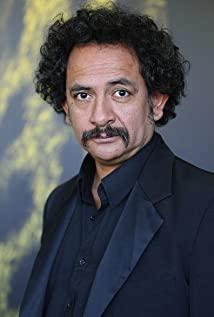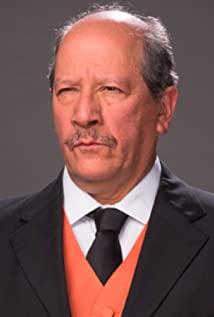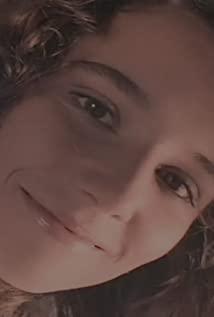As a gentile boy who lived in prestigious neighborhood and went to private school, the protagonist Gonzalo encountered the political unrest going on outside his ivory tower unintentionally. Joining his friend to pick up some extra money, Gonzalo sold flags in both the Nationalists and the Communists rallies. In a profound juxtaposition, Gonzalo jumped both when the crowd shouted “jump if you are not a commie” and “jump if you are not a mummy”, sharing the excitement of the crowd without having knowledge of their political intention. On the day of coup d'état, he witnessed two jets flying towards the Presidential Palace, unaware of the fact that this seminal event marked the end of Chilean democracy. While Gonzalo hadn't developed his own political awareness, the restless Chilean politics manifested itself in his life,through ways not understandable to a child of his age. By having a young boy unbiasedly testingifying the political agitation ongoing in Chile, Machuca avoids sending emotional and simplistic political messages, and successfully conveys a strong sense of presence of politics in common people's lives.
The children are portrayed as simply children without the false glow of larger-than-life heroism. After the street fight between far-left and far-right militants, Machuca and Silvana slowly began to take defensive against Gonzalo. They sneaked back to their more Quite comfortable existences and later on, finding himself involved in atrocity happening in shantytown, Gonzalo made the same decision, used his class status as free pass and abandoned his friend behind. The movie doesn't try to romanticize the invulnerability of the children's friendship. the opposite, it reveals the children's vulnerability facing disturbing layers of adults' events, which are beyond their control and understanding as well.
There are strong hints that Machuca is a semi-autobiography. The film is dedicated to Father Gerardo Whelan, who from 1969 to 1973 was the director of Colegio Saint George, the private English-language school in Santiago that the film's director attended as a boy . The name of the film, Machuca, hints at the film director's attempt to tell the story of a childhood friend, to relive his memory fragments of being situated in the middle of his country's political storm, and to retrospectively understand history that was beyond his understanding as a young boy. The motif of children living in without being able to see through events happening around them lends more generality to the movie than representation of a certain historic trauma.
View more about Machuca reviews


